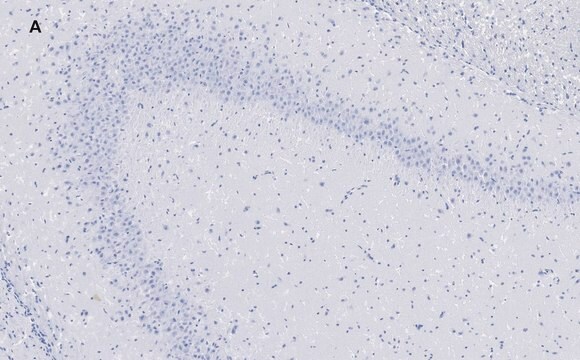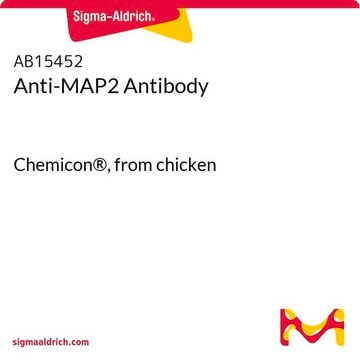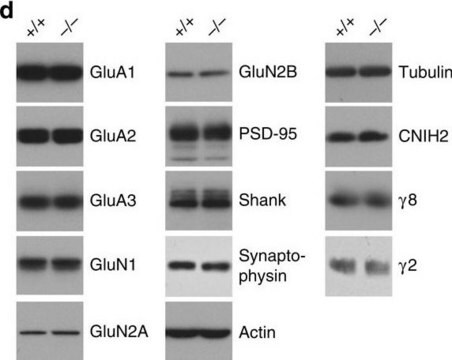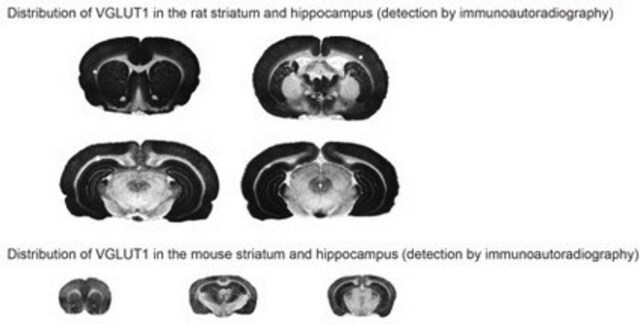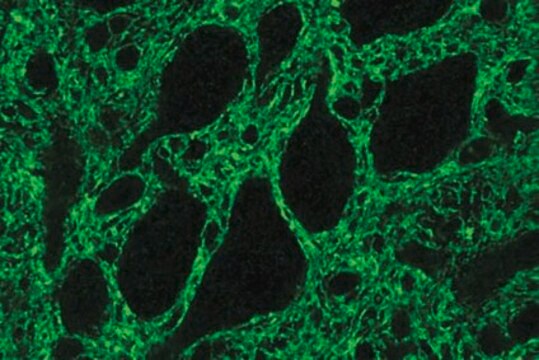MABE1045
Anti-CTIP2/BCL11B Antibody, clone 25B6
clone 25B6, from rat
Synonym(s):
B-cell lymphoma/leukemia 11B, B-cell CLL/lymphoma 11B, BCL-11B, COUP-TF-interacting protein 2, mRit1, Radiation-induced tumor suppressor gene 1 protein
About This Item
Recommended Products
biological source
rat
Quality Level
antibody form
purified immunoglobulin
antibody product type
primary antibodies
clone
25B6, monoclonal
species reactivity
mouse, human
technique(s)
immunohistochemistry: suitable (paraffin)
western blot: suitable
isotype
IgG2a
NCBI accession no.
UniProt accession no.
shipped in
ambient
target post-translational modification
unmodified
Gene Information
human ... BCL11B(64919)
General description
Specificity
Immunogen
Application
Immunofluorescence Analysis: A representative lot detected CTIP2 localization in 4% paraformaldehyde-fixed floating embryonic (E14 & E16) and postnatal (P3 & P6) mouse brain sections (Arlotta, T., et al. (2005). Neuron. 45(2):207-221).
Western Blotting Analysis: A representative lot detected doublet CTIP2 bands, representing two spliced isoforms, in Jurkat nuclear extracts as well as in SIRT1 immunoprecipitate (Senawong, T., et al. (2003). J. Biol. Chem. 278(44):43041-43050).
Quality
Western Blotting Analysis: 0.5 µg/mL of this antibody detected CTIP2/BCL11B in 10 µg of HEK293 cell lysate.
Target description
Physical form
Other Notes
Not finding the right product?
Try our Product Selector Tool.
Storage Class
12 - Non Combustible Liquids
wgk_germany
nwg
flash_point_f
Not applicable
flash_point_c
Not applicable
Certificates of Analysis (COA)
Search for Certificates of Analysis (COA) by entering the products Lot/Batch Number. Lot and Batch Numbers can be found on a product’s label following the words ‘Lot’ or ‘Batch’.
Already Own This Product?
Find documentation for the products that you have recently purchased in the Document Library.
Our team of scientists has experience in all areas of research including Life Science, Material Science, Chemical Synthesis, Chromatography, Analytical and many others.
Contact Technical Service


